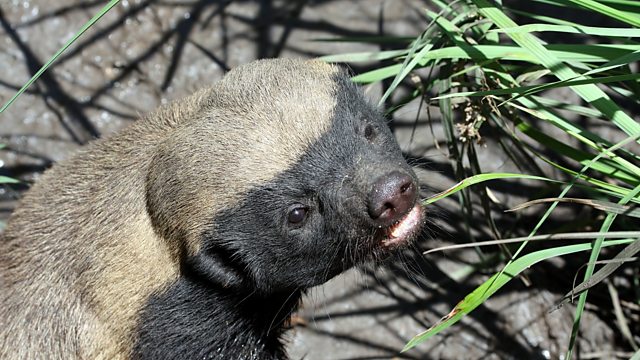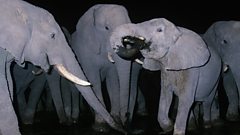The power of night
Lucy Cooke meets some of the animal kingdom’s nocturnal inhabitants to understand why it pays to stir once the sun goes down and how future survival may depend on a nightlife
Lucy Cooke meets some of the animal kingdom’s nocturnal inhabitants to understand why it pays to stir once the sun goes down.
She examines some of the extraordinary nocturnal adaptations from the largest group of mammals, the bats, to the mysterious long fingered lemur, the Aye Aye, to hear why the dark has proved evolutionarily advantageous. In an increasingly crowded planet, could future survival for many diurnal animals depend on a nightlife?
Producer Adrian Washbourne
Picture: Honey Badger, Credit: Cindernatalie/Getty Images
Last on
More episodes
Previous
Clip
-
![]()
Is human activity driving animals to be more nocturnal?
Duration: 03:41
Broadcasts
- Mon 15 Feb 2021 20:32GMTΒι¶ΉΤΌΕΔ World Service Americas and the Caribbean, UK DAB/Freeview, News Internet, Europe and the Middle East & Online only
- Mon 15 Feb 2021 21:32GMTΒι¶ΉΤΌΕΔ World Service Australasia, South Asia & East Asia only
- Tue 16 Feb 2021 04:32GMTΒι¶ΉΤΌΕΔ World Service
- Tue 16 Feb 2021 11:32GMTΒι¶ΉΤΌΕΔ World Service
- Tue 16 Feb 2021 18:32GMTΒι¶ΉΤΌΕΔ World Service East and Southern Africa & West and Central Africa only
- Mon 22 Feb 2021 00:32GMTΒι¶ΉΤΌΕΔ World Service
Space
The eclipses, spacecraft and astronauts changing our view of the Universe
The Curious Cases of Rutherford and Fry
Podcast
-
![]()
Discovery
Explorations in the world of science.




